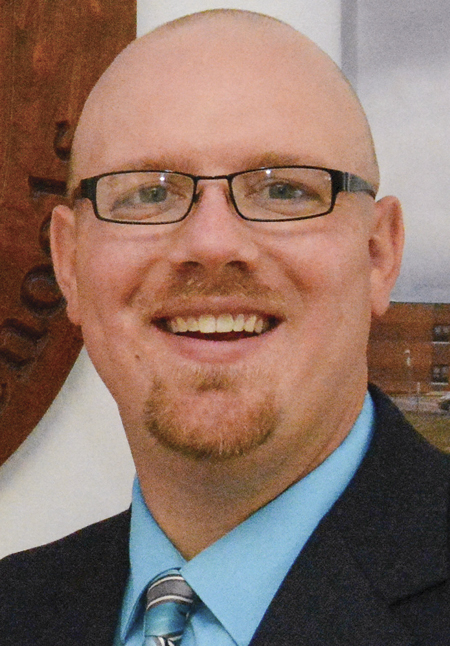Thunderbird Partnerships: From Fledgling to Flight
October 02, 2023
A New Jersey school district’s program connects the community’s experts to classroom learning and student growth in the workplace
In classrooms, we often hear from students: “Why am I learning this?” and “What does this have to do with my future?”
In Mahwah, N.J., our school district, comprised of approximately 2,800 students, found a way to turn our schools into authentic learning sites by opening our doors and welcoming in community-based experts who give their time to make real-world connections for and with our learners. They also provide opportunities for students to experience off-site learning.
The Thunderbird Partnership Program, a product of our strategic planning, is the realization of a desire to have our schools more readily and more authentically connected with the greater community. Ultimately, our district leadership team was reminded that our students see their own place in our schools and find purpose even beyond our schools when they have the opportunity to realize the potential of their self-worth. For our students to gain authentic learning experience and preparation requires all of our students to see their own path.
This Content is Exclusive to Members
AASA Member? Login to Access the Full Resource
Not a Member? Join Now | Learn More About Membership
Customizing Our Curricula to Match Local Industry Culture
By Adam L. Cheeseman
 The development of localized curricula has enabled remarkable gains in our West Virginia school district. In just over a decade, Doddridge County Schools have soared from 53rd to 3rd place among all county school systems in the state in terms of standardized
test scores in math, language arts and science.
The development of localized curricula has enabled remarkable gains in our West Virginia school district. In just over a decade, Doddridge County Schools have soared from 53rd to 3rd place among all county school systems in the state in terms of standardized
test scores in math, language arts and science.
In working with JASON Learning, a nonprofit organization focused on STEM education, our 1,180-student district has developed customized, project-based and standards-aligned curricula that integrates local industries and cultural aspects. This leads to a relevant and meaningful learning experience for students in a specific community or region. Localized curricula integrate local relevance, cultural diversity and real-world applications by considering a geographic area’s unique characteristics, challenges and strengths.
With local industry partners and JASON, our district has developed four localized curriculum units on broadband internet, civil engineering, HVAC and energy. Each curriculum prepares students with in-demand skills, a foundation of STEM knowledge, local career awareness and exposure to professional career opportunities.
Our partnership with City Mechanical, a local construction company that maintains a large HVAC workforce, lends one illustration. As with other company partners, City Mechanical’s CEO/president joined our staff and JASON’s curriculum development team in a series of meetings to discuss the ins and outs of the HVAC industry, both broadly and regionally. The curriculum was developed and implemented in our career and technical education classrooms following those meetings, and the first internships were offered to students. In May, the first HVAC state and localized curricula completer entered a full-time job with City Mechanical one day after graduation.
Three R’s
By focusing on the three R’s of a localized curriculum — relevance, relational and rewarding — school districts can transform K-12 education and unlock the learning experience for students and communities alike.
Relevance: Embracing innovation to stay ahead
Public education is no longer the only choice as alternatives expand. To remain relevant, we need innovative approaches that allow students to connect with their community.
Enter public-private partnerships and localized curricula, where students can see themselves and their communities reflected in the content through diverse role models, real-world examples, and place-based activities. By exploring industries in their backyards, students gain a deeper understanding of their education’s significance, and they are exposed to local career opportunities, unlocking new possibilities.
Relational: Building skills for success
In any industry, relational and transferable skills are crucial. Through localized curricula, students gain practical skills and knowledge that directly align with the workforce demands of their community. They also engage directly with mentors and learn the specialized language of their chosen pathway. Just as grammar is essential in English class, speaking the language of an industry empowers students to thrive and foster meaningful connections.
Our district’s alignment with local industry ensures that students are academically prepared and equipped with the skills and competencies required for their career opportunities.
Rewarding: Empowering students, businesses and communities
Localized curricula offer a wealth of rewards. Students can earn certifications, shadow industry professionals and experience the work environment firsthand. Local employers are integrated into the curriculum as role models and mentors to the students. Businesses benefit by preparing a skilled workforce, while the community prospers from a strong local economy and a robust talent pool.
With localized curricula, students find meaningful employment and contribute to generational wealth, transforming the trajectory of their lives and the community.
Bridging Gaps
The future of education and workforce development lies in bridging the gap between education and industry. By bringing local companies into the K-12 education fold and creating state-approved curricula, we directly address the knowledge, skills and abilities our surrounding industries demand. Let’s expose our students to the world of industry before graduation, equipping them with the tools they need to thrive.
Adam Cheeseman is superintendent of Doddridge County Schools in West Union, W. Va. Twitter: @MrCheesemanDCS
A Think Tank Designed With Practicality Foremost
The Thunderbird Think Tank, also referred to as T³, was built without raising any tax levy on the township, relying principally on the district’s capital reserve thoughtfully saved over a decade.
The Thunderbird Think Tank was created after a cohort of teachers, supervisors and administrators viewed alternatives around New Jersey. From that process, this cadre of professionals shaped the ultimate design of the facility, so it could be envisioned with purpose and in practicality of what instruction could look like in this new space.
This learning space was built and furnished so that creative collaboration between teachers, courses, content and students could take place within one annex of our high school facility. Housed within the Thunderbird Think Tank are specific courses, such as Engineering and Technology Principles, Computer Programming, Humanoid Robotics, Animation, Computer Modeling, Woodworking and Furniture Making and STEAM Design and Research, along with a professional development facility for staff across the district and a visual arts gallery to showcase student work.
The facility’s design allows furniture to be moved, so learning spaces can be adjusted for collaboration across classrooms, and the classrooms’ glass walls can physically be used for thought-provoking jots. Students can be out of their seats, working with one another on a course concept, conducting cross-curricular activities in a way that transcends what we have always known as collaboration.
As stated in the Mahwah Township Schools’ 2020-2025 strategic plan, we are committed to providing the student-centric learning environments that will adequately equip our learners with experiences and skills essential to compete in our ever-evolving world.
— Michael DeTuro and Dennis Fare
Advertisement
Advertisement
Advertisement
Advertisement



